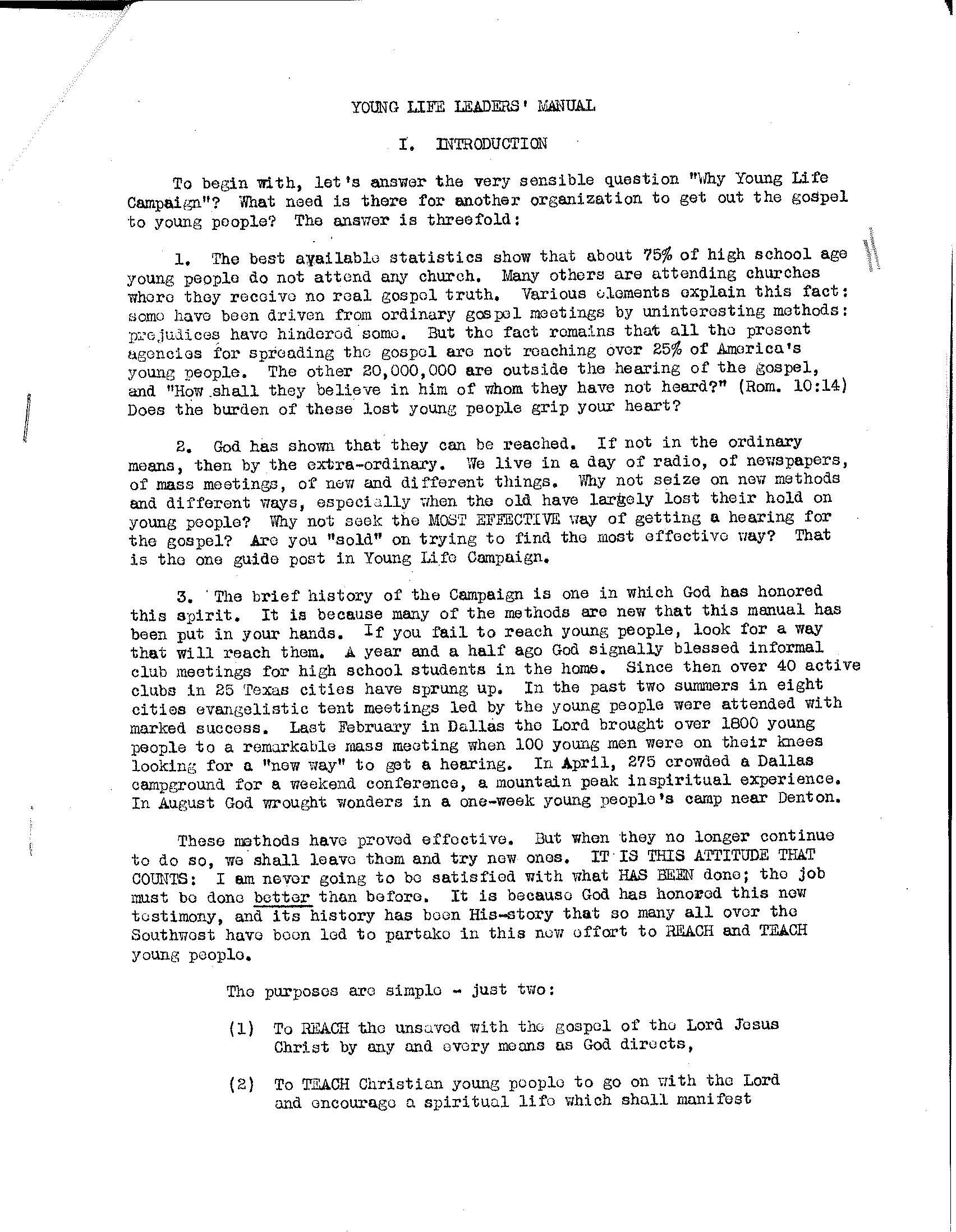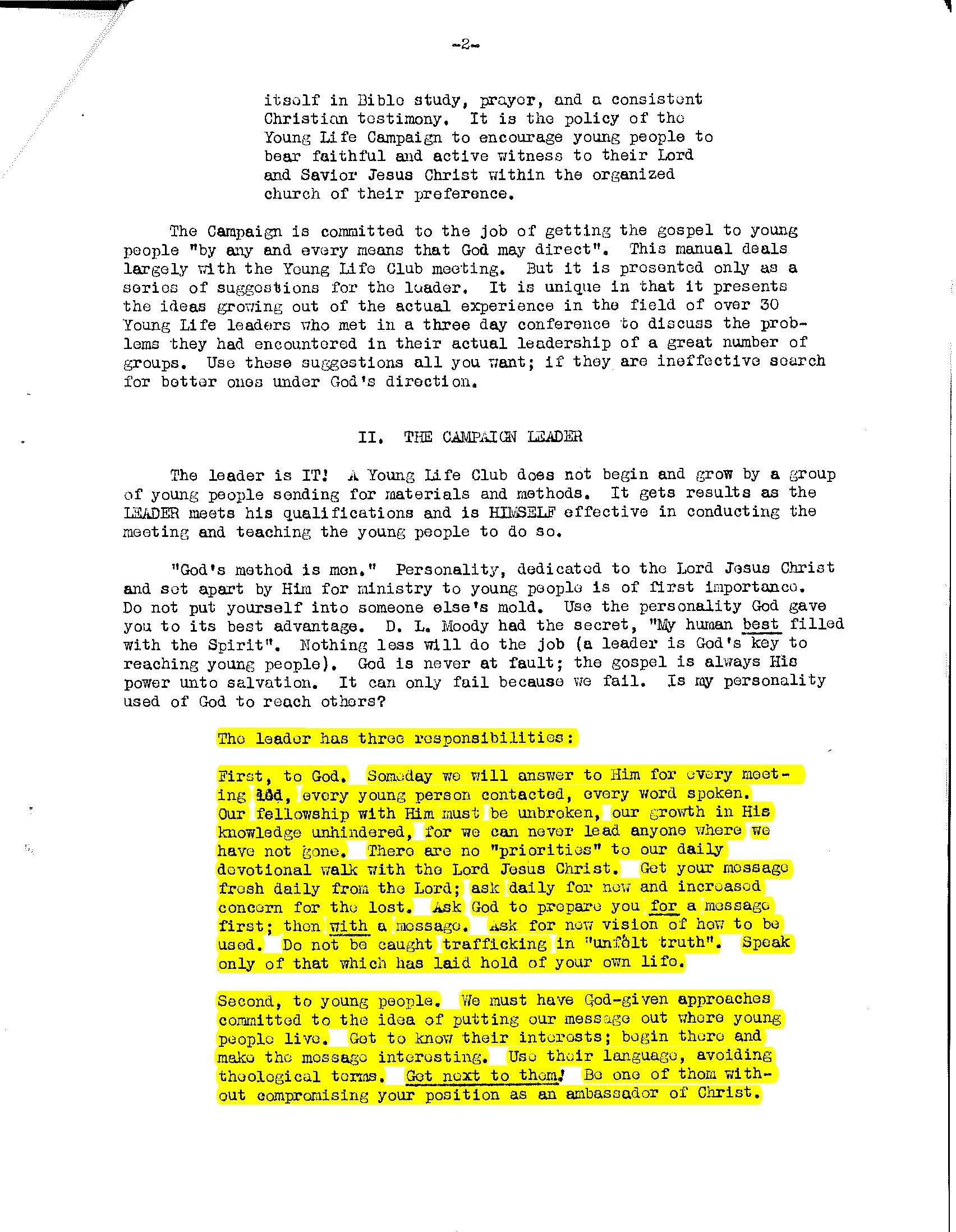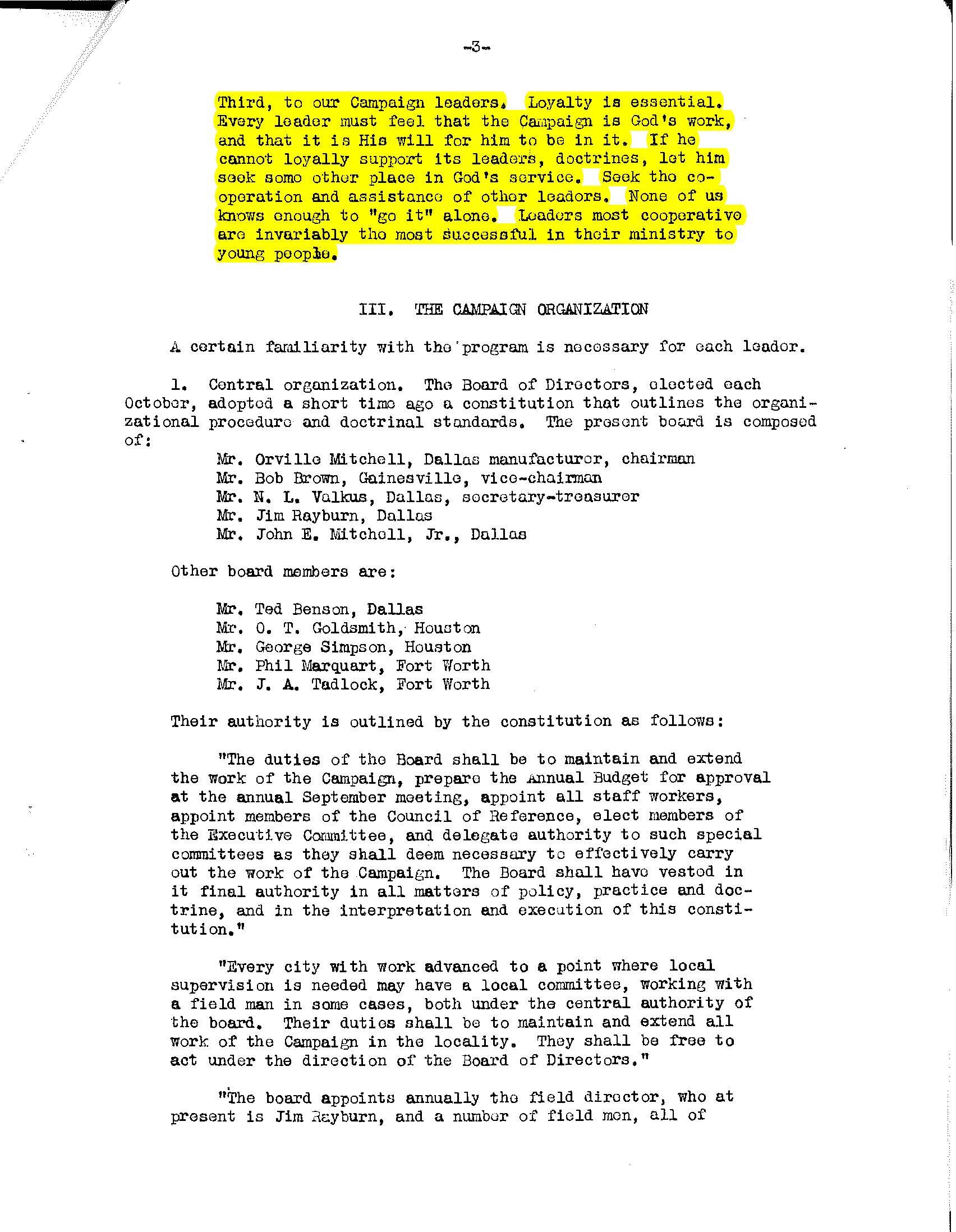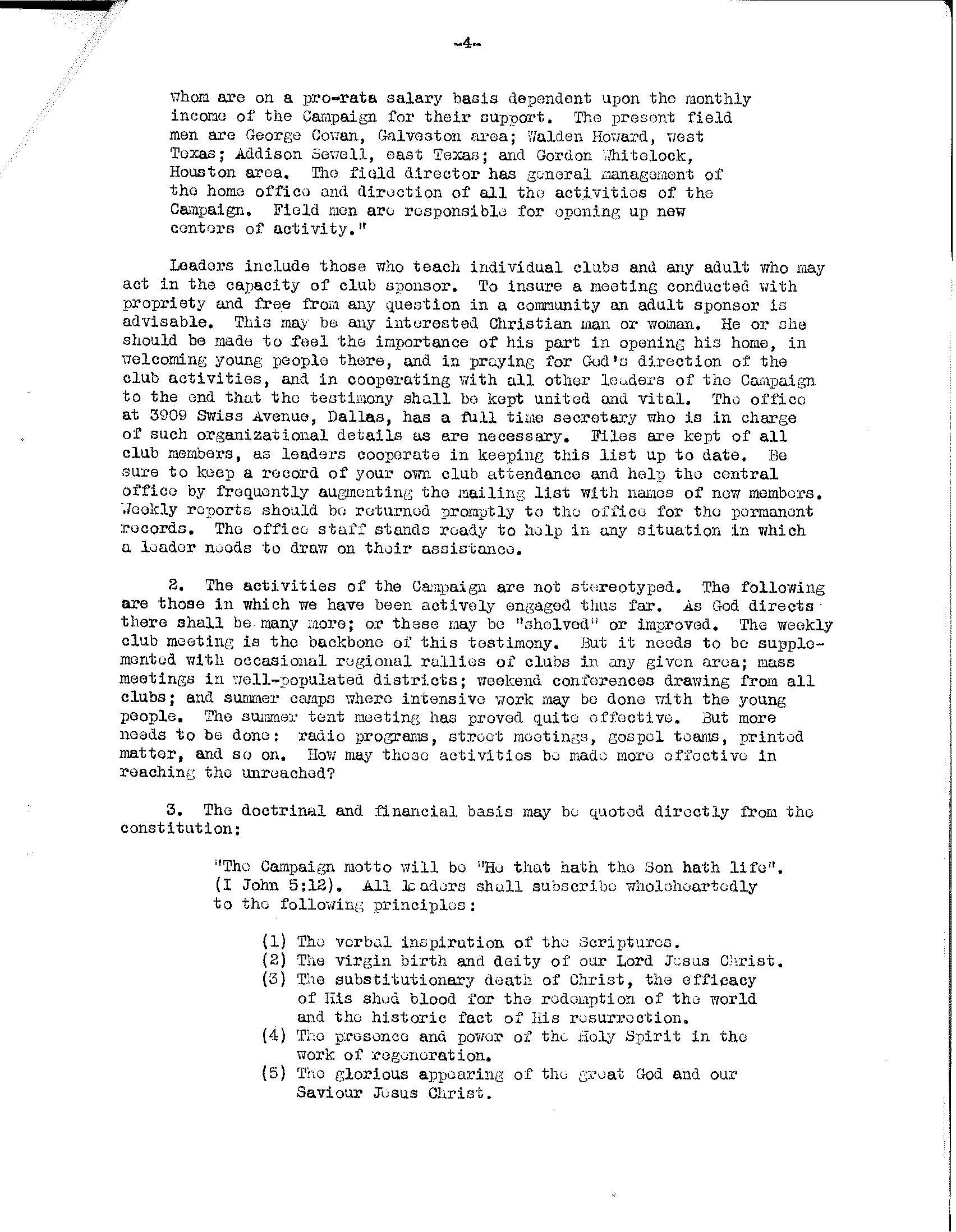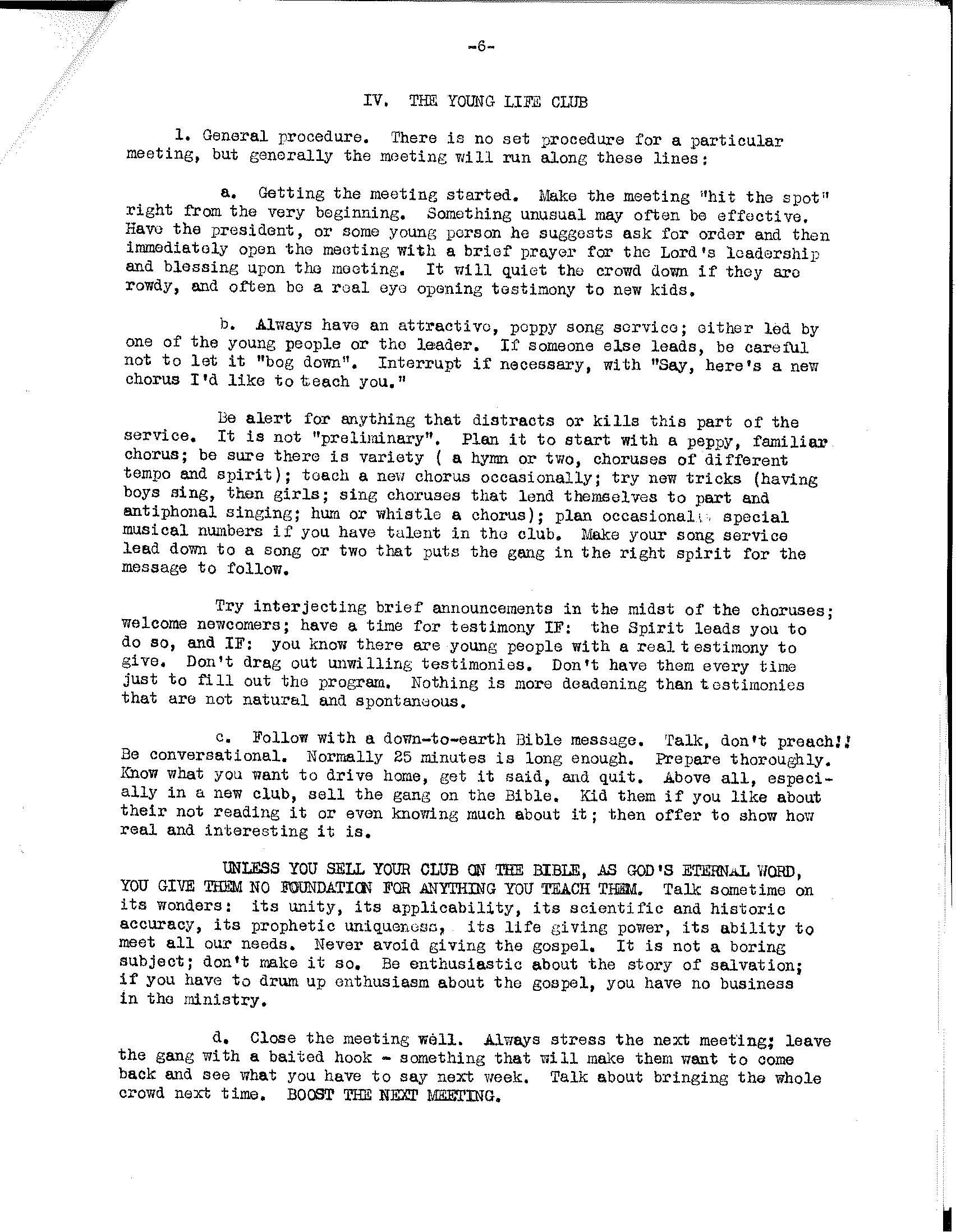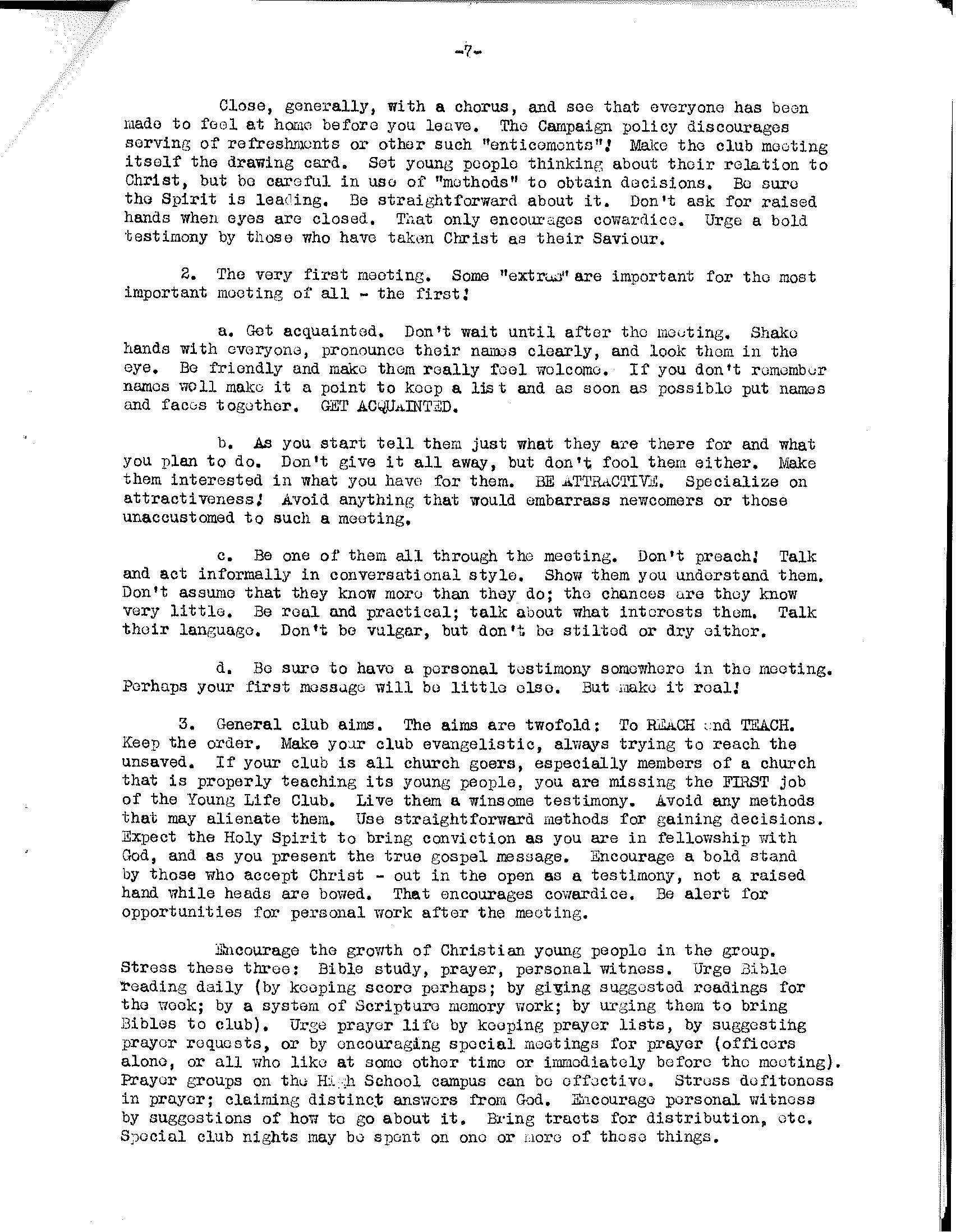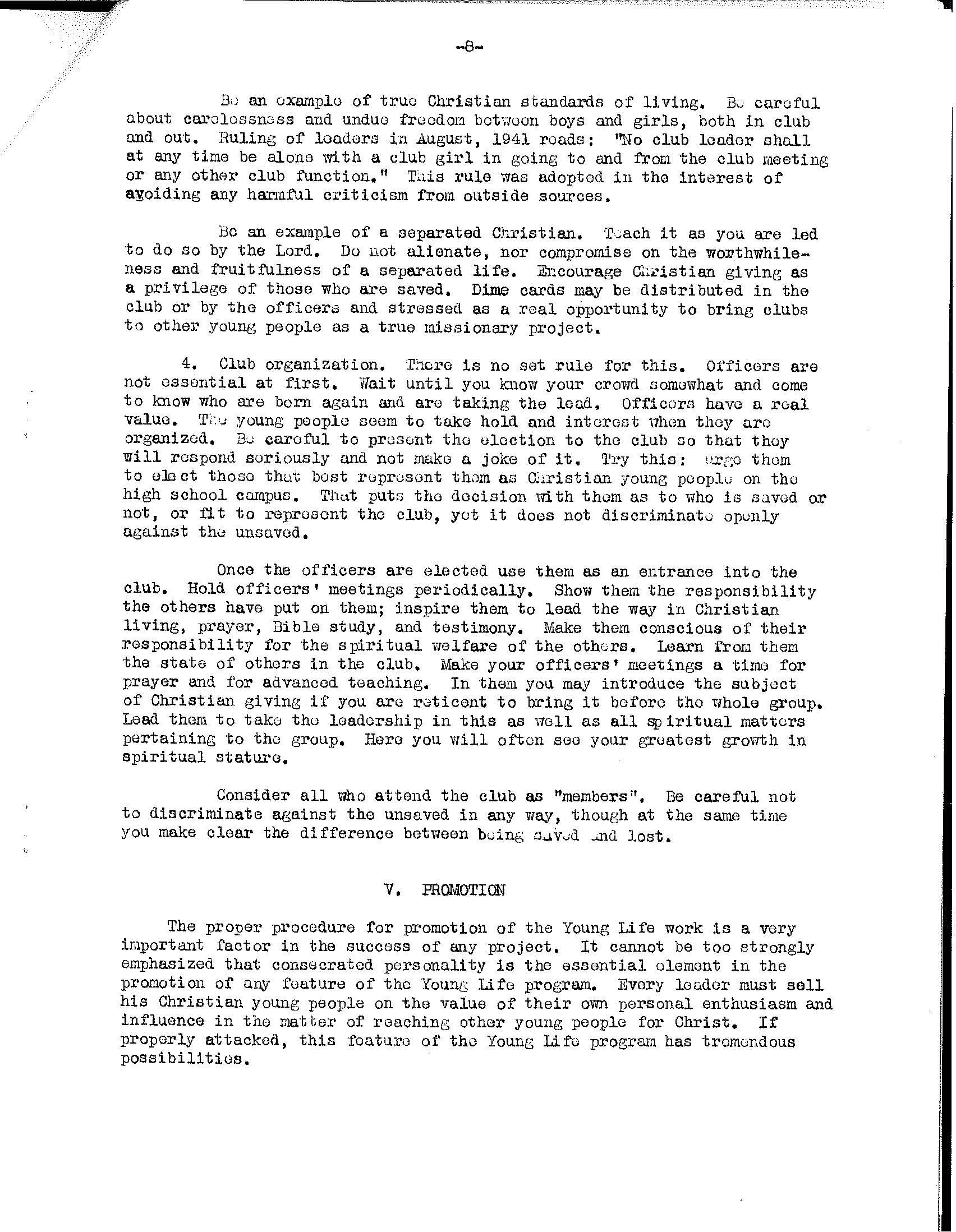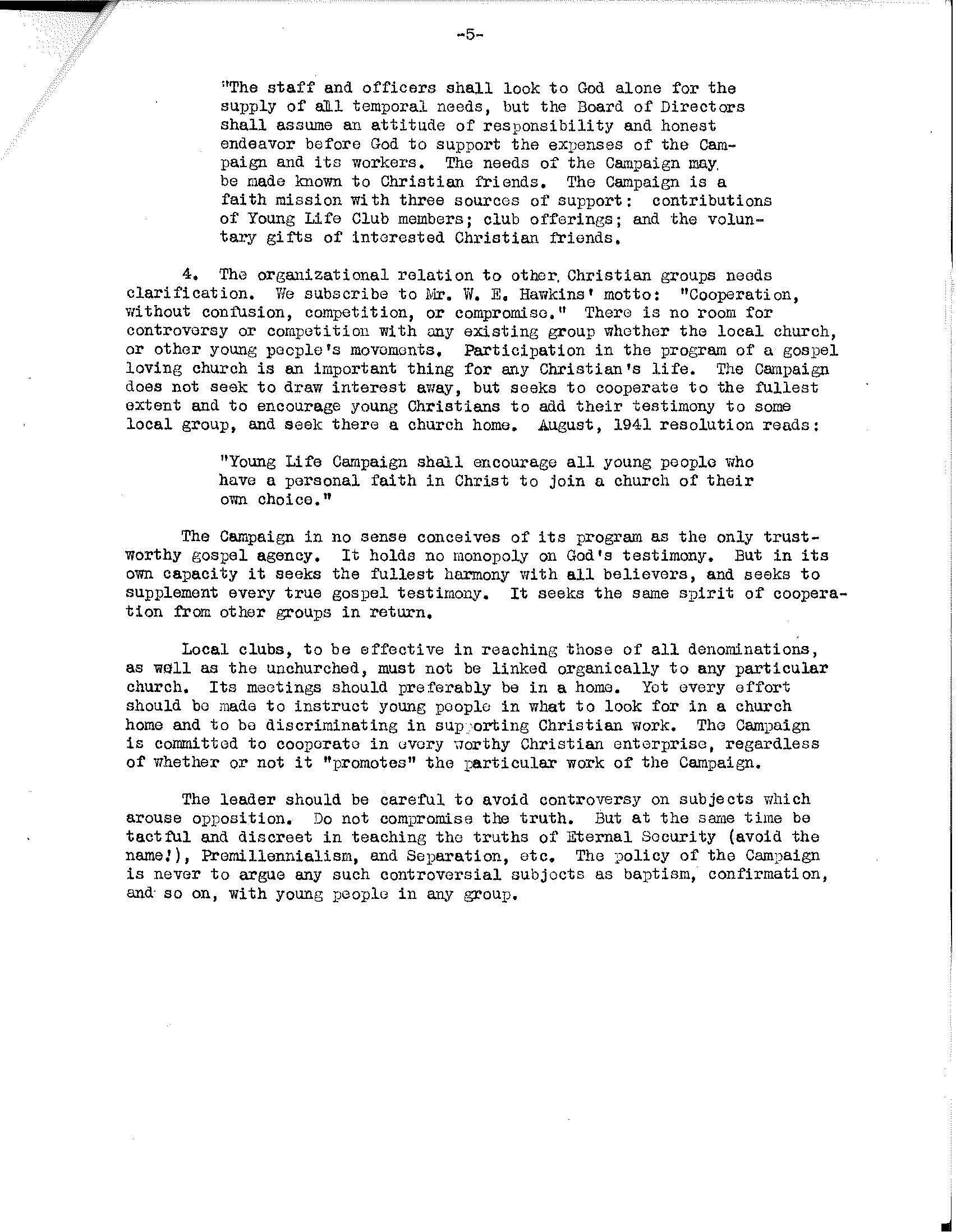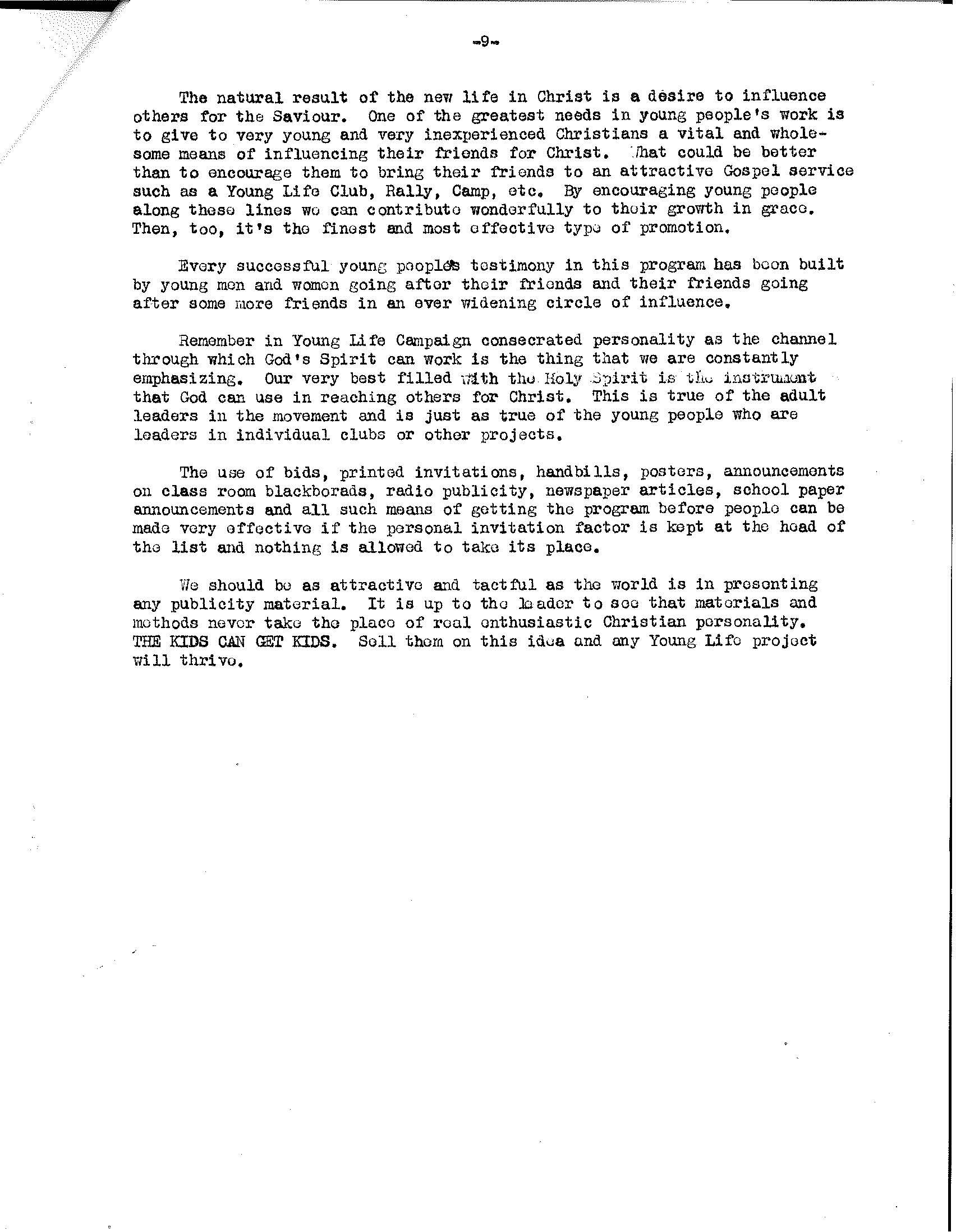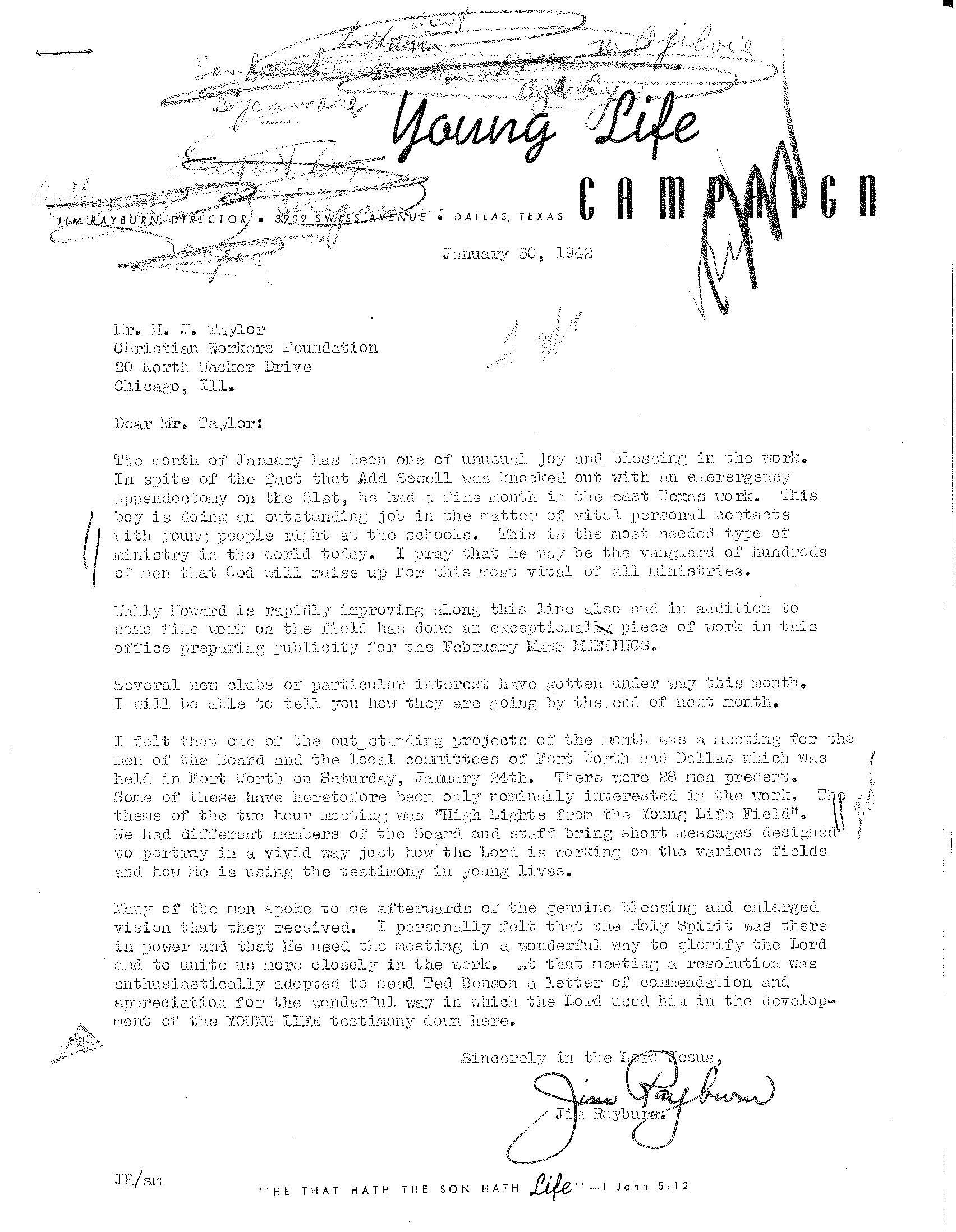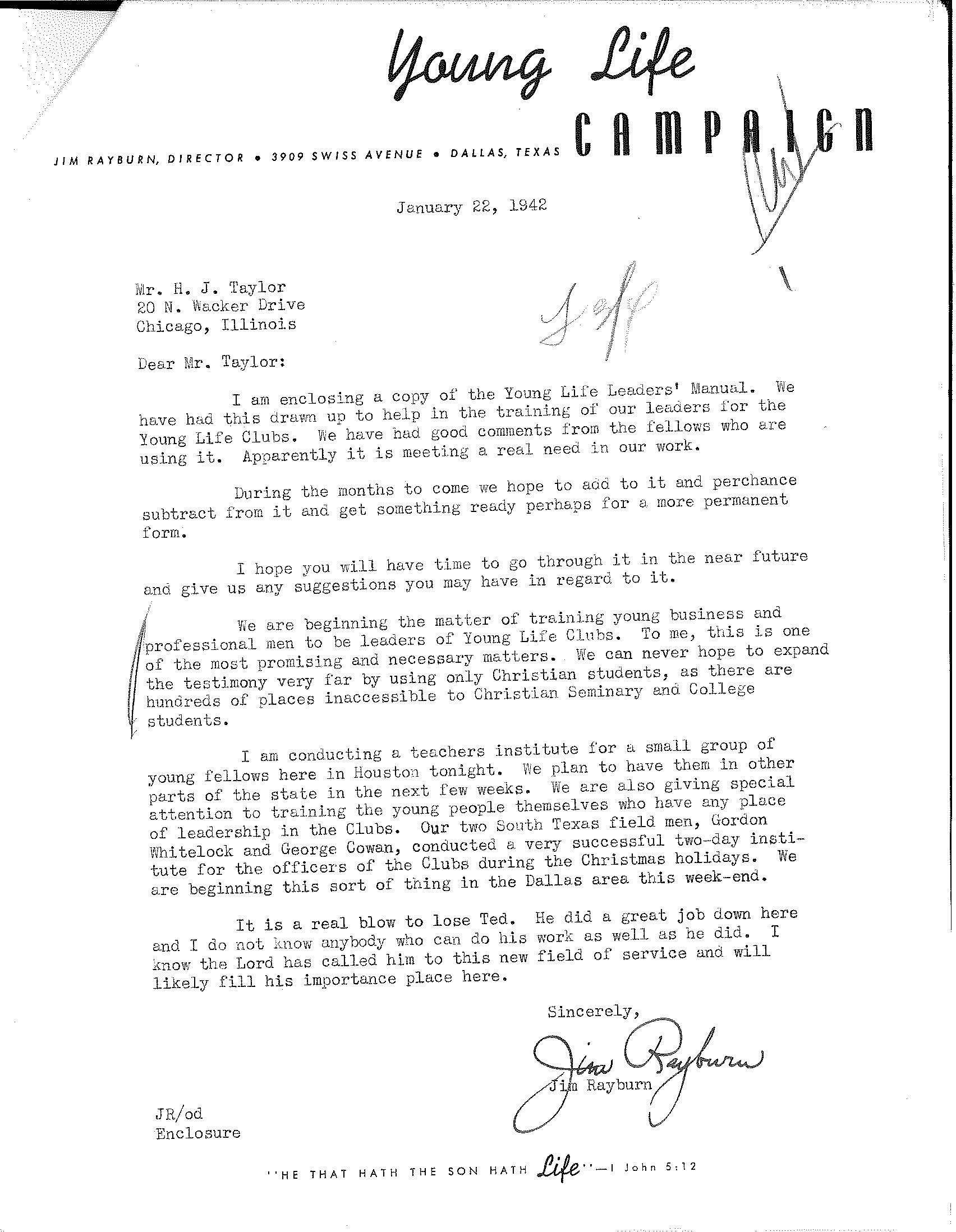We worship a God of community. Three in one, each expression unique, mysterious, and beautiful, working and communing together in perfect harmony. Man was made in God’s image, and from the beginning it was clear that it was not good for man to be alone. As the missional plan of God was revealed (and recorded in scriptures), it was evident that the God of community desired to fulfill His plan through community. This community would enjoy the benefits of being “God’s people” but with the expressed purpose of sharing with those outside of the community the truth of God’s saving grace and love. The first such community was the nation of Israel and then (and now) the body of believers that share faith in the Gospel reveal this triune God.
Two thousand years after the book of Acts was penned, God’s plan for missional communities has not changed. We know this and have experienced this in the mission of Young Life. As a missional arm of the body of Christ, our desire is to reach every adolescent with the Good News of Jesus Christ and help them grow in their faith. United as one mission around this passion and yet organized locally in thousands of missional communities around the globe, this is Young Life.
Each community (or Young Life team) is unique, an eclectic group with diverse characteristics, but unified in their diversity. The global missional community of Young Life represents every denomination, culture, background, educational level, and socio-economic class. Every identifier that our world would use to divide is united in Young Life around the desire to share the gospel with adolescents. The body of Christ fully represented in order that anyone outside of our community might also be given an opportunity to be invited in. A truly missional community.
The blueprint is not new to the Church; it is not unique to (and was not invented by) Young Life. Healthy Young Life teams have as their primary focus - Jesus and not Young Life. These communities gather regularly to worship, pray, and open the scriptures together. There is time for fellowship -- usually around food -- intentionality in asking questions that matter, and a desire to know others as well as the courage to be known. There is laughter that unifies and lightens the mood, not the sarcastic or crude humor of the culture that tears down. There is time to linger, the opportunity to build friendships with people that you might not “choose” as your friends. There is adventure and surprises -- because Young Life people love both. There is a freedom to be who you are and, within the right context, the opportunity to share how you are struggling.
There is also the mission. Young Life teams get to go out together. Literally, a short term mission experience happens every week. Individually scared, but scared together. Courageous together, creative together, awkward together, succeeding together, and failing together. The mission field becomes the fertile soil for the community to grow in dependence and love, for Christ and for each other. Of course the Lord doesn’t need us or these communities to accomplish His purpose with teenagers. This mission and its community are His gift to us. For this we were created. Only in missional community do we have the “life to the full” that Jesus promises; we were made for this.
We live in a time where we are exposed to more counterfeit communities than ever before. Hours daily are spent building a virtual community that portrays a certain image on a social media platform that perpetuates constant comparison. We work with teenagers that have a thousand “friends” and yet are more lonely than ever before. Opportunities for entertainment, activity, and productivity have never been greater, and people are overscheduled, exhausted, and alone. If true community is water, the world has never been more thirsty. A healthy missional community is literally a stream of living water.
And yet, as the mission of Young Life continues in a season of unparalleled favor, one of the threats to our current and future health is the pull away from a movement of missional communities to an organization of ministry programs. The lure of the latter is tempting as it fits nicely in the plans and strategies of man, and it might even give the impression of predictable success. One might view Young Life’s meteoric growth as a strategic cocktail of great leadership, beautiful camps, and prescribed program. That would be a mistake. The favor of the Lord on the mission of Young Life has little to do with these things. Our favor rests in an individual and corporate love for and commitment to our triune God, a desire and commitment to go together, and a passion to know every adolescent that has not personally known or experienced the goodness of these gospel truths.
As the missional community that has experienced God’s goodness through the ministry of Young Life, let’s not lose sight of our first Love and how that first Love has been so clearly expressed. It was into a missional community that we were invited. Let us not fall into the temptation to make the programs, the properties, or the brand of Young Life into an idol or to give them too much importance. Let us be very careful to not think too highly of our creativity, humor, and courage. An arrogant community that sets itself apart from the body of Christ is not a missional community.
Jim Rayburn is noted as saying “the best Young Life is yet to come.” The world has set the stage for this to be true. Our invitation is to missional community: life and ministry together wonderfully expressed through the ministry vehicle of Young Life. May God grace us with his favor in our communities, and may our Living God, not Young Life, get the glory.




















